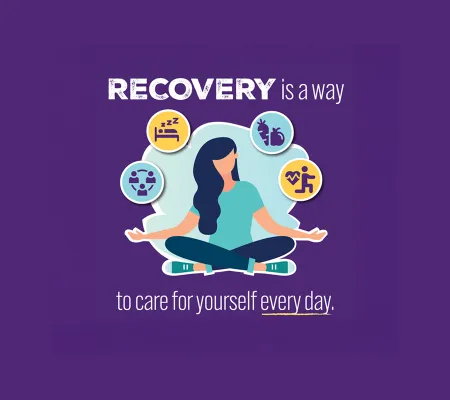What Recovery supports does Trillium offer?

The National Recovery Month Theme for 2025 is Recovery is REAL (Restoring Every Aspect of Life). The Substance Abuse and Mental Health Services Administration (SAMHSA) reminds us that with the right treatment, support, and resources, recovery is REAL.
At Trillium Health Resources, we see the impact of resilience and recovery every day. Recovery is real for Certified Peer Support Specialists (CPSS) who work in the Transition to Community Living (TCL) and Support Transition and Re-entry (T-STAR) programs. Trillium employs individuals with lived experience to assist with destigmatizing mental health, substance use, and justice involvement. They know the path of recovery because they’ve walked it themselves.
The CPSS helps to empower and encourage members who look like them so the members will know that Recovery is REAL.
Trillium’s Recovery Resources
The National Institute on Drug Abuse defines recovery as a process of change through which people can improve their health and wellness, live self-directed lives, and strive to reach their full potential. Trillium clinical staff link members to behavioral and physical health providers of their choice to initiate the recovery journey. Take a free, quick, and confidential Mental Health Screening to take a snapshot of your well-being and find information, services, and resources for support.
Trillium contracts with providers across its 46-county catchment area to ensure members receive the right service of their choice to ensure individualized treatment. Individuals can call the Member and Recipient Services line at 1-877-685-5415 for additional information on available services and connection to the following:
- Substance Abuse Intensive Outpatient Program (SAIOP)
- Substance Abuse Comprehensive Outpatient Treatment (SACOT)
- Peer Support Services (PSS)
- Assertive Community Treatment Team (ACTT)
- Community Support Team (CST)
- Mobile Crisis
Understanding Addiction
One in 14 Americans experience substance use disorder, according to the Centers for Disease Control and Prevention (CDC). Knowing the signs of addictions is essential to providing support to the individual. The US Drug Enforcement Administration provides 11 signs of addiction.
Know the Signs of Addiction:
- Difficulties at school, disinterest in school-related activities, and declining grades
- Poor work performance, being chronically late to work, appearing tired and disinterested in work duties, and receiving poor performance reviews
- Changes in physical appearance, such as wearing inappropriate or dirty clothing and a lack of interest in grooming
- Altered behavior, such as an increased desire for privacy
- Drastic changes in relationships
- A noticeable lack of energy when performing daily activities
- Spending more money than usual or requesting to borrow money
- Issues with financial management, such as not paying bills on time
- Changes in appetite, such as decreased appetite and associated weight loss
- Bloodshot eyes, poor skin tone, and appearing tired or run down
- Defensiveness when asked about substance use
What would decreasing stigma around addiction look like?
Decreasing stigma involves increasing addiction literacy to challenge education gaps and myths about substance use disorders and mental health. Understanding addiction as a health condition emphasizes its treatability. It also encourages early intervention, access to the healthcare system, and better management of the chronic health condition. Use words that can reduce stigma when discussing substance use disorder and the people affected. The use of “person-first” language is essential for stigma reduction, focusing on the person and not their condition.
Unshame NC reports 53 percent of North Carolina adults know someone with a substance use disorder. Unshame NC has resources available for those supporting individuals with substance use disorders and to help break down barriers to treatment and support.
Additional Resources and Supports

- SAMHSA and the North Carolina Department of Health and Human Services (NCDHHS) provide resources for support groups, treatment, recovery, training and overdose prevention.
- SMART Recovery Family & Friends: Offers online and community meetings based on SMART Recovery tools to help families cope with substance use.
- Learn to Cope: A nationally recognized peer-led support network providing education, resources, and support for families of those with substance use disorders.
- Family Support Navigators: Trained staff who help families understand addiction and navigate treatment services. NCDHHS Peer Warmline and the 988 Suicide & Crisis Lifeline—call 988 for urgent help.
- National Alliance on Mental Illness (NAMI) Family Support Group: Offers support for families dealing with mental illness.
- NC Harm Reduction Coalition, Treatment facilities, Detox centers, and The Healing Place of New Hanover County
NCHDHHS launched the first mobile Opioid treatment program in August 2025. Research indicates people enrolled in an Opioid Treatment Programs (OTP) have a higher survival rate. The number of people enrolled in OTPs in North Carolina has increased by 25 percent since 2019, with another increase expected in 2025.
Are you in recovery and living with a mental health or substance use diagnosis?
Do you want to make a difference in others’ lives?
Disclaimer:
This blog is for educational purposes only. Please speak to your doctor about any health concerns you may have.

